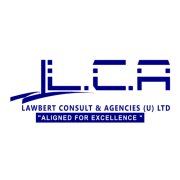Best Energy Regulatory Law Lawyers in Uganda
Share your needs with us, get contacted by law firms.
Free. Takes 2 min.
Or refine your search by selecting a city:
List of the best lawyers in Uganda
About Energy Regulatory Law in Uganda
Energy Regulatory Law in Uganda governs the production, transmission, distribution, supply, import, export, and use of energy resources, particularly electricity and renewable sources. The law sets out the legal framework for managing energy resources, regulating energy companies, protecting consumers, and ensuring sustainable development in the sector. The Electricity Regulatory Authority (ERA) is the main regulatory body responsible for overseeing and enforcing these laws, licensing industry players, and ensuring fair and efficient operations within the energy sector.
Why You May Need a Lawyer
Engaging a lawyer experienced in Energy Regulatory Law can be vital in various situations. Businesses and individuals may require legal assistance when applying for energy licenses, negotiating power purchase agreements, addressing regulatory compliance issues, resolving disputes with energy providers, or dealing with environmental impact assessments. Lawyers can also assist in navigating the complex application processes, advocating during enforcement proceedings, and advising on investment structures within the sector. Whether you are a start-up power producer, a large utility company, a landowner affected by energy infrastructure projects, or a consumer facing service problems, a legal expert can help safeguard your rights and ensure compliance with all statutory obligations.
Local Laws Overview
Uganda’s legal framework for energy regulation is largely defined by the Electricity Act, 1999, along with several subsidiary regulations and guidelines issued by ERA. The Act provides for the licensing and regulation of electric generation, transmission, distribution, and sale. It outlines procedures for tariff setting, consumer protection, and dispute resolution. The Renewable Energy Policy guides the development of sources like solar, wind, biomass, and hydropower, while the Energy Policy for Uganda encourages private investment and outlines obligations for environmental stewardship. Additionally, the Public Procurement and Disposal of Public Assets Act and environmental statutes, such as the National Environment Act, intersect with energy regulation and may impose extra requirements for projects. Licensing, safety compliance, tariff regulation, and protection of consumer interests are recurring themes in Uganda’s regulatory landscape.
Frequently Asked Questions
What is the role of the Electricity Regulatory Authority in Uganda?
The ERA regulates and oversees the electricity industry, including licensing operators, setting tariffs, enforcing regulations, and protecting consumer interests within the Uganda energy sector.
Do I need a license to generate or distribute electricity in Uganda?
Yes. Anyone who seeks to generate, transmit, distribute, or supply electricity must obtain the appropriate license from the ERA. Failure to do so may result in penalties.
How are electricity tariffs set and reviewed?
ERA sets and reviews tariffs through a consultative process, considering operator costs, investments, efficiency, and consumer interests. Public input is often incorporated during this process.
Can foreign investors participate in Uganda’s energy sector?
Yes, foreign investors can invest in power generation, transmission, and distribution subject to licensing and regulatory requirements. Uganda encourages both local and foreign private investment in energy.
What should I do if I am affected by a new power line or energy project?
You should be consulted during the environmental and social impact assessment process. Compensation for affected land and property is typically provided according to the law. Legal advice may be necessary to protect your interests.
How are disputes between consumers and electricity providers resolved?
Most disputes are handled first by the service provider. If unresolved, complaints can be escalated to the ERA, which has the authority to mediate and decide on energy sector disputes.
Are there specific regulations for renewable energy in Uganda?
Yes. The Renewable Energy Policy provides guidance, incentives, and regulatory requirements for investments in solar, wind, mini-hydro, and other renewables. Licensing and environmental controls apply to these projects.
What are the penalties for operating without an ERA license?
Operating without a valid license is illegal and may result in fines, prosecution, or closure of operations under the Electricity Act and related regulations.
Are there consumer protection measures in the energy sector?
The Electricity Act and ERA regulations offer mechanisms for consumers to report poor service, unsafe installations, or unfair billing. There are procedures for investigation and enforcing remedies by the regulator.
How can I appeal an ERA decision I disagree with?
If dissatisfied with an ERA decision, you can lodge a formal appeal as provided for in the Electricity Act. If you are still aggrieved, you may seek judicial review in Ugandan courts. Legal guidance is advisable in such cases.
Additional Resources
- Electricity Regulatory Authority (ERA) - main regulator for the electricity sector in Uganda - Ministry of Energy and Mineral Development - policy development and sector oversight - National Environment Management Authority (NEMA) - for environmental compliance and impact assessments - Uganda Investment Authority - information for investors in the energy sector - Uganda National Bureau of Standards - guidance on technical and safety standards applied in the energy sector
Next Steps
If you require legal advice or representation in Energy Regulatory Law in Uganda, begin by clearly defining your legal issue or business objective. Research and approach qualified lawyers or law firms with demonstrated experience in energy regulation. Prepare all relevant documentation, such as project proposals, contracts, and correspondences with regulatory bodies. You may also contact ERA or the Ministry of Energy for initial guidance on procedure or requirements. Remember, early legal intervention can prevent regulatory breaches, streamline licensing processes, and protect your investment or rights within Uganda's evolving energy sector.
Lawzana helps you find the best lawyers and law firms in Uganda through a curated and pre-screened list of qualified legal professionals. Our platform offers rankings and detailed profiles of attorneys and law firms, allowing you to compare based on practice areas, including Energy Regulatory Law, experience, and client feedback.
Each profile includes a description of the firm's areas of practice, client reviews, team members and partners, year of establishment, spoken languages, office locations, contact information, social media presence, and any published articles or resources. Most firms on our platform speak English and are experienced in both local and international legal matters.
Get a quote from top-rated law firms in Uganda — quickly, securely, and without unnecessary hassle.
Disclaimer:
The information provided on this page is for general informational purposes only and does not constitute legal advice. While we strive to ensure the accuracy and relevance of the content, legal information may change over time, and interpretations of the law can vary. You should always consult with a qualified legal professional for advice specific to your situation.
We disclaim all liability for actions taken or not taken based on the content of this page. If you believe any information is incorrect or outdated, please contact us, and we will review and update it where appropriate.
Browse energy regulatory law law firms by city in Uganda
Refine your search by selecting a city.
















